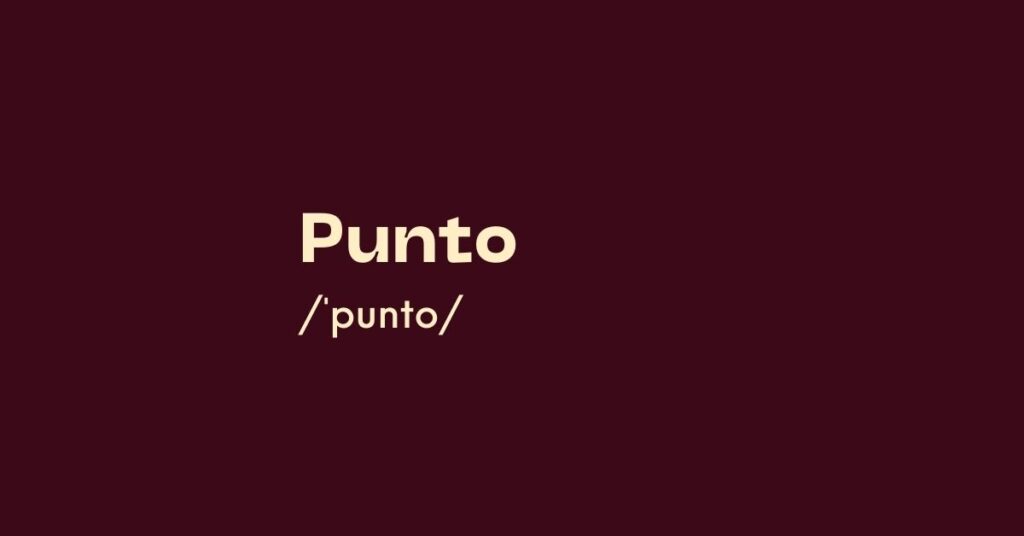Today’s Spanish word of the day is “punto”.
It’s a masculine noun meaning “point”.
Both “punto” and “point” come from Latin punctum, which meant “a small hole made by pricking”.
The Real Academia Española lists 43 uses for the word “punto”, so it’s quite a versatile word that comes up in a lot of different contexts.
The word “punto” can refer to a period or full stop (the punctuation mark used at the end of sentences).
It’s also used in a lot of phrases and expressions, including the following:
- A punto de – About to
- Punto de partida – Starting point
- Punto de vista – Point of view
- Hasta cierto punto – To a certain extent
Example sentences
No estoy de acuerdo con tu punto de vista.
I do not agree with your point of view.
Estamos a punto de salir.
We are about to leave.
Nos quedamos aquí, y punto.
We are staying here, and that’s that
Haz un punto al final de la frase.
Put a period at the end of the sentence.
El equipo ganó por un punto.
The team won by one point.
Y punto
If you want to emphasize what you’ve said in English and indicate your opinion won’t be swayed, you might finish your statement with the word “period” (if you’re American), or “full stop” if you’re British.
For example, you might say:
- “Barcelona is the best city in Europe, period.” (American English)
- “Barcelona is the best city in Europe, full stop.” (British English)
The Spanish equivalent of this is to end your sentence with “y punto”:
- Barcelona es la mejor ciudad de Europa, y punto.
This makes sense, as “punto” also means “period” or “full stop”.

